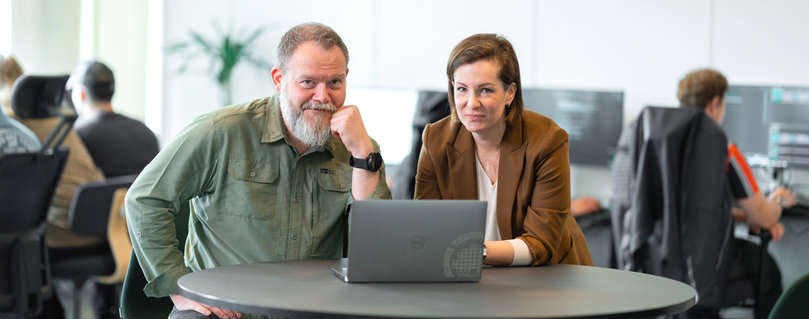World-class software engineering

What would happen if there were to be an electricity blackout? It’s a common question we ask ourselves. Everything would be brought to a standstill. But what would happen if all the software were to disappear? The same thing, if you ask researchers at BTH who have helped the University claim its place as one of the foremost in the field globally.
In the popular mind, software used to be thought of as the thing that made your phone or computer work. Today, everything is software, even for companies otherwise clearly associated with hardware.
“Take IKEA as an example. If their website is down for an hour, it hurts them badly, so in a way they are also now a software company,” says Darja Šmite, professor of software engineering.
And perhaps it is precisely this development in the field that has made BTH’s research so relevant, both nationally and internationally. In fact, BTH’s research in software engineering is ranked second in the world and number one in Europe, despite having a fraction of the budget of other prestigious higher education institutions.
“That is part of it, but another equally important part is that we were quick to embrace applied research, i.e., research that takes place hand-in-hand with companies and their needs. This makes us the hub between businesses and society’s challenges,” says Tony Gorschek, professor of software engineering.
Research in software engineering at BTH started mainly with local companies, but nowadays there are collaborations with companies all over Sweden – many of them are also major global enterprises such as Ericsson, Volvo and Spotify. The variety of companies provides a uniquely broad basis for building knowledge.
“The range of companies we work with is enormous and it has given us a fantastic range of experience. Software engineering is so much more than just programming and we help throughout the entire life cycle: How do you build a good team? How much tool support is needed? What about security?” says Darja Šmite.
“Compare it to a chef. First, they have to invent a recipe, try it to make sure it tastes good, test it among their customers and make sure the ingredients are right. It’s the same thing in software engineering, there are many steps along the way before something is completed,” adds Tony Gorschek.
Now, there is also a natural environment to host these collaborations with businesses – the Ericsson Space Lab.
“What was missing was a space where researchers, companies and students could meet to socialise and collaborate. The most important thing about this environment is that the students own it. They should feel that it is their home. Companies and researchers are allowed to visit, but we are guests of the students. They are the engineers of the future.”
The lab is an ideal environment for students on the Master’s programmes in software engineering, AI and machine learning, and computer security, for example. Yet, the Ericsson Space Lab is not the only thing that BTH students can look forward to. Another thing is a job.
“Above all, I would say that what awaits students coming to BTH is a job. After three or four years, even before completing their education, most of our students receive a job offer,” says Darja, who had three different jobs in the industry before she came to BTH.
“You can be sure that you will get a well-paid and stimulating job, absolutely. But perhaps more importantly, you can end up anywhere in any role: as a software engineer at Ericsson, a game developer, a data scientist at Spotify, or a cyber security expert at the Swedish Tax Agency. When software is important to virtually every company around the world, there are almost no limits,” Tony Gorschek concludes.
5 October 2023